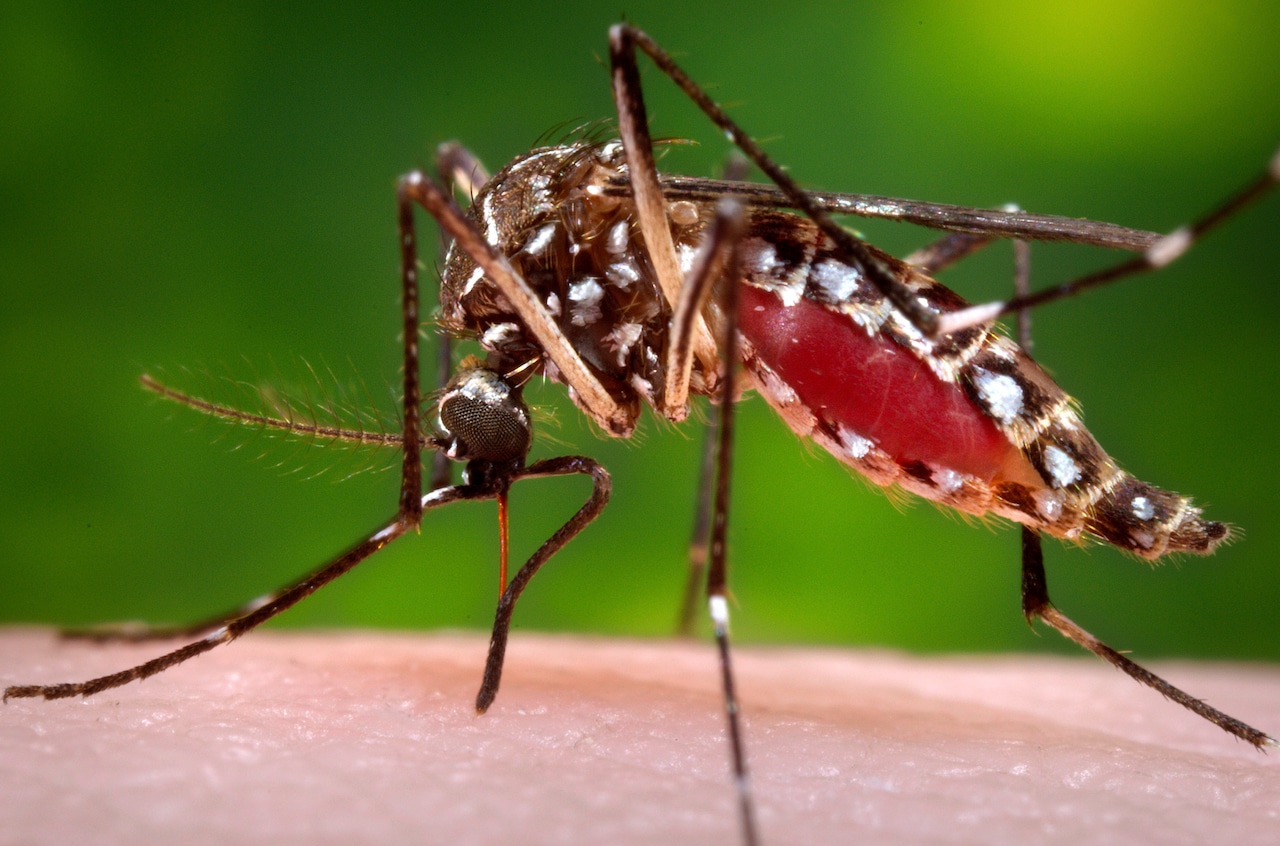
Two additional people in Massachusetts have tested positive for the West Nile virus (WNV), state officials announced.
The new WNV cases — which were found in two men in their 60s — bring the total number of confirmed human cases to six this season. It is most likely the men were exposed in Worcester County, the Department of Public Health (DPH) said.
This elevates the risk level of West Nile virus to “high” in 15 towns and cities. These include Auburn, Berlin, Boylston, Charlton, Holden, Hopkinton, Hudson, Leicester, Millbury, Northborough, Paxton, Shrewsbury, West Boylston, Westborough and Worcester.
These communities are part of the 43 total municipalities that are at high risk for WNV in Suffolk, Middlesex, Essex and Worcester counties. The risk level is “moderate” in 201 cities and towns in Barnstable, Berkshire, Bristol, Essex, Franklin, Hampden, Hampshire, Middlesex, Norfolk, Plymouth, Suffolk and Worcester counties.
“West Nile virus continues to spread, and people remain at risk,” said Public Health Commissioner Robbie Goldstein. He added that risk is highest when the weather is warm and humid.
“Because some risk will continue until the first hard frost, we are encouraging everyone to continue to take the necessary steps to protect themselves from mosquito bites by using mosquito repellent and wearing long sleeves and pants to reduce exposed skin when they are outdoors,” Goldstein said.
The state first detected WNV-positive mosquitoes on June 17 this year. There have been 442 samples that have tested positive since then from all Massachusetts counties except Nantucket.
The first case of West Nile virus detected in Massachusetts this year was in a goat in Lunenburg in July.
Additionally, Eastern equine encephalitis (EEE) has also been detected in 23 samples of mosquitoes so far in 2025. No human or animal cases have yet been detected.
How to avoid mosquito bites
The department suggests that people use insect repellent when outside. The repellent should be made with an EPA-registered ingredient such as DEET, permethrin, picaridin, or oil from lemon eucalyptus.
DEET products should not be used on babies younger than two months old and should be used in concentrations of 30% or less on older kids. Oil of lemon eucalyptus shouldn’t be used on kids under three.
The department also suggested that people reschedule any outdoor activities during peak mosquito-biting times — dusk to dawn.
People should also wear long-sleeved clothes to prevent mosquito bites. They should also remove standing water from their homes and install window screens to keep mosquitoes out of their homes.



